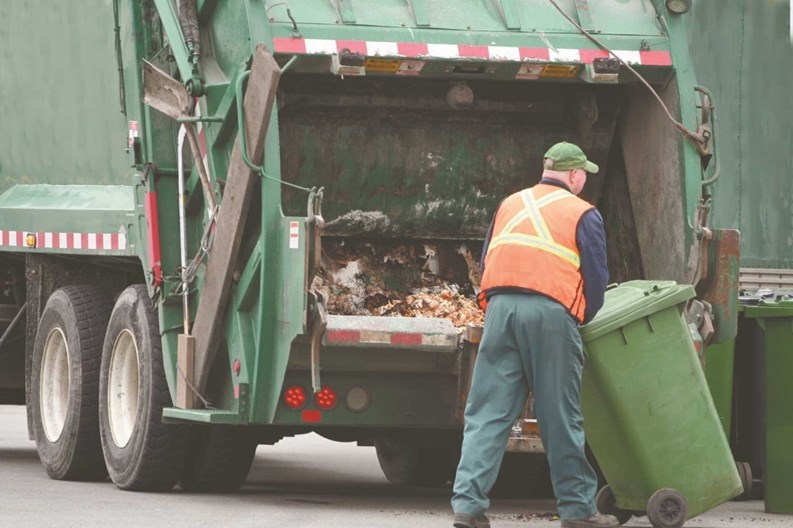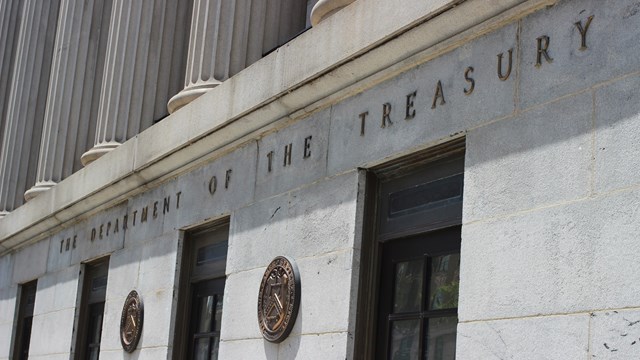Last year, a condo unit owner in Andover, Massachusetts, called the town’s Department of Public Works to complain that he had to drag trash containers to the end of the street and was wondering why the trucks couldn’t come by his driveway.
The business manager for the DPW, Sandra Gerraughty, explained to the caller that his complex was supposed to be handling its own trash pickup. “He realized what happened and admitted, ‘Oh, maybe I shouldn’t have said anything,’ before hanging up,” she recalls. This inclusion of condo communities on the trash route may be unintended, “but it has been a slow progression in Andover,” she says, adding, “The town does pickup at multi-families of six units or less; it’s specified in our contract with the vendor.”
She is in the process of sorting out a course of action. “I’m researching town records and the original plans [from when condo communities were constructed] to see if there are any conditions in a special permit… and I’m preparing a report. Then the selectmen will decide what to do,” she says.
Andover is not unique in dealing with this issue. Cities and towns throughout New England may be providing maintenance services—from recycling to snow-plowing—within condo communities because of formal agreements, or simply because of old habits. More commonly however, they are providing no services at all—but by what right?
Reasons for Withholding Don’t Hold Up
Attorney Richard Brooks, a partner in the law firm of Marcus, Errico, Emmer & Brooks of Braintree, Massachusetts, believes that towns are penalizing condo owners if they withhold public services. Town officials, as an excuse, will complain, “We don’t have enough money,” he says, “… but condo communities use less services in general, and the town comes out way ahead [with tax revenue]. Since most condos are one or two bedroom, when averaged out, there are a lot fewer kids in the school system coming from condo units.” This is important because public education is by far the most costly service that tax dollars pay for in any New England community.
There have been a number of actions to end this disparity between condo owners and other taxpayers, he states. “In Marlboro, a few condo associations formed an informal coalition and put together all the information about the advantages of condo residents as taxpayers, and they met with city officials” to work on providing trash and recycling pickup to condo communities.
“Town officials will come up with reasons [not to do it],” Brooks notes, “like ‘it’s all private roads in there’ or ‘we can’t pick up [your] dumpsters’… But those excuses don’t hold water. Sure, the roads may be private, but the association simply grants [the town’s equipment] permission to come on-property. Also, we have found that trash haulers are usually contracted by the municipality,” and these contractors are already picking up similar dumpsters at other locations, he says.
Some condo communities were built with roads that meet municipal specifications and have been accepted as town roads. One example is Spyglass Hill in Ashland, Massachusetts, with 324 units. “At one time,” Brooks says, “there was only one kid from the complex in the public school system.” The whole community was costing the town hardly anything, since it was handling its own road maintenance. At some point, he adds, the roads at Spyglass were accepted as town roads, and from then on, the town took on the road maintenance. That meant Spyglass residents were now receiving the same town services as single-family property owners, since in Ashland, everyone was already getting trash and recycling pickup, regardless of public or private road status.
Since his firm has been advocating for condo associations in the state, he adds, “about 37 towns have switched… and now provide trash and recycling pickup at condo communities, and another two towns have agreed to pickup recycling only. Plus, other towns [like Ashland] have been doing it right along.” Small condo properties sometimes receive town services under the radar, and in other towns, officials have agreed to pick up at communities that are under a certain size. “You just have to convince [town officials] that it’s fair,” Brooks states. “It’s not an easy battle… Framingham took 10 years” before residential communities began getting trash pickup.
But timing is definitely a factor for condo groups that may try to convince towns to expand service into their properties. “I worked with the Town of Swampscott [a couple of years ago] and the condo’s request didn’t fly… It wasn’t a good time [to ask]. The town had just closed a nursery school as a budget-cutting measure,” he explains.
Is it Discrimination?
Without mincing words, Rhode Island attorney Raymond Harrison has stated that condo unit owners and associations are “victims of discrimination” when they do not receive all of the services municipalities provide to single family home owners, when they’re paying the same taxes. This position is a radical departure from the mindset of trustees and board members in most condo or homeowner communities. Considering themselves self-governed, they have resigned themselves to collecting fees—and paying for—mostly all infrastructure maintenance and services. A closer look may reveal no real basis for waiving town services, however.
The self-contained aspects of residential communities are a tradition that may have originated with developers trying to “sell” their projects to municipal governments, planning and zoning boards. It’s easier for a builder to get permits for a large-scale housing development if the town won’t be maintaining the roads or picking up the trash. That kind of developer’s deal may not ultimately seem fair or make sense to future unit owners when they pay their real estate tax bills each year.
Harrison argues that “Starting with zoning—which is rather recent [as legislation goes]—we’re in an age of land regulation. Building and construction have become a political process. We [now] have all these regulatory agencies with tremendous powers to effect, modify, approve or deny projects. Developers have become politicized,” and have learned how to get favorable responses from local officials. He says that “condos can look like a good source of tax revenue” if the developer promises that his project won’t use town services, whether it’s trash pickup or streetlights. “In the construction industry [in Rhode Island] we don’t have licensing or financial responsibility” as a requirement for doing business.
As condo construction evolved, “Public officials should have recoiled in horror… at the idea of giving away their future constituents’ future rights [to services],” continues Harrison. If developers were looking for a bargaining tool to mitigate the impact of providing services to new housing units, he adds, “They could have offered to build a library or contribute to a senior center… but instead they gave away the [condo project’s] homeowners’ rights.”
This whole issue of suspending services to condo communities usually has no basis in any contract agreements. He points out, “It’s part of a culture. It’s not often even set forth in the condo docs—who maintains roads and does trash pickup.” On the town government side, services to condo communities are sometimes addressed as conditions of a special permit related to subdivision or building construction—but often there’s no conditions and nothing in writing, notes Harrison.
Watch What You Wish For
Beyond town government, there may be even better ways to cut costs of services and maintenance in residential communities. Miriam Brooks, co-chair on the board of directors for the Devon Wood condominiums in Braintree, has been advocating to unite other communities in her town with formation of a Braintree Condominium Coalition. “We want to figure out how to negotiate better contracts for trash and recycling pick-up,” she reports. The municipalities of Quincy, Weymouth and Braintree, she says, “have formed a regional contract [with a vendor] for trash and recycling pickup” and her group could also get better deals on services if they were a united force and had more buying power. “We might not go to the town [to demand services] but go directly to vendors. When you negotiate, you can potentially get a better contract and save money.”
She points out that some condo properties don’t have curbside pickup for recycling, and that just makes their trash costs higher. “We have single-stream recycling [which is] easy to do and diverts material out of the trash… so your trash removal costs go down. We’d like the other condo communities to do better… by getting recycling going and be able to negotiate better vendors for their trash pickup.”
Besides banding together for buying power, the coalition will be able to represent condo owners in town government, she adds, “so we can speak as a group at town meeting.”
But when condo associations start demanding services from their municipal governments, she warns, “This can be a double-edged sword” when the benefits are thoroughly analyzed. She cites the case of a condo association, because of its size, that was able to negotiate a lower price for the condominium’s residents’ trash pickup than the local government could negotiate for its residents. She contends that when condo owners seek public services, the same aforementioned argument can be made: “In order to get public services, you have to have public streets…”
Waiving public services may be necessary to attain the added privacy and the lifestyle that condo residents have chosen, she points out, and demanding public services may compromise that privacy. When you buy into a condo, you sign the condo docs, she says, and agree to certain responsibilities and restrictions.
“Everything’s a trade-off,” she adds. “The reasons you go into a condo are the reasons that the fees exist,” according to Ms. Brooks, adding that arguments about not receiving services that you pay for with your taxes don’t really hold up to scrutiny. “Taxpayers who don’t have children in the school system could make the same case,” about not receiving services that their taxes are paying for, she says. People make choices to pay fees—and they still pay taxes. “There’s that notion of supporting the common good,” she adds, “for you, for your condo community… and for your town.”
Marie Auger is a Massachusetts-based freelance writer and a frequent contributor to New England Condominium.







Comments
Leave a Comment